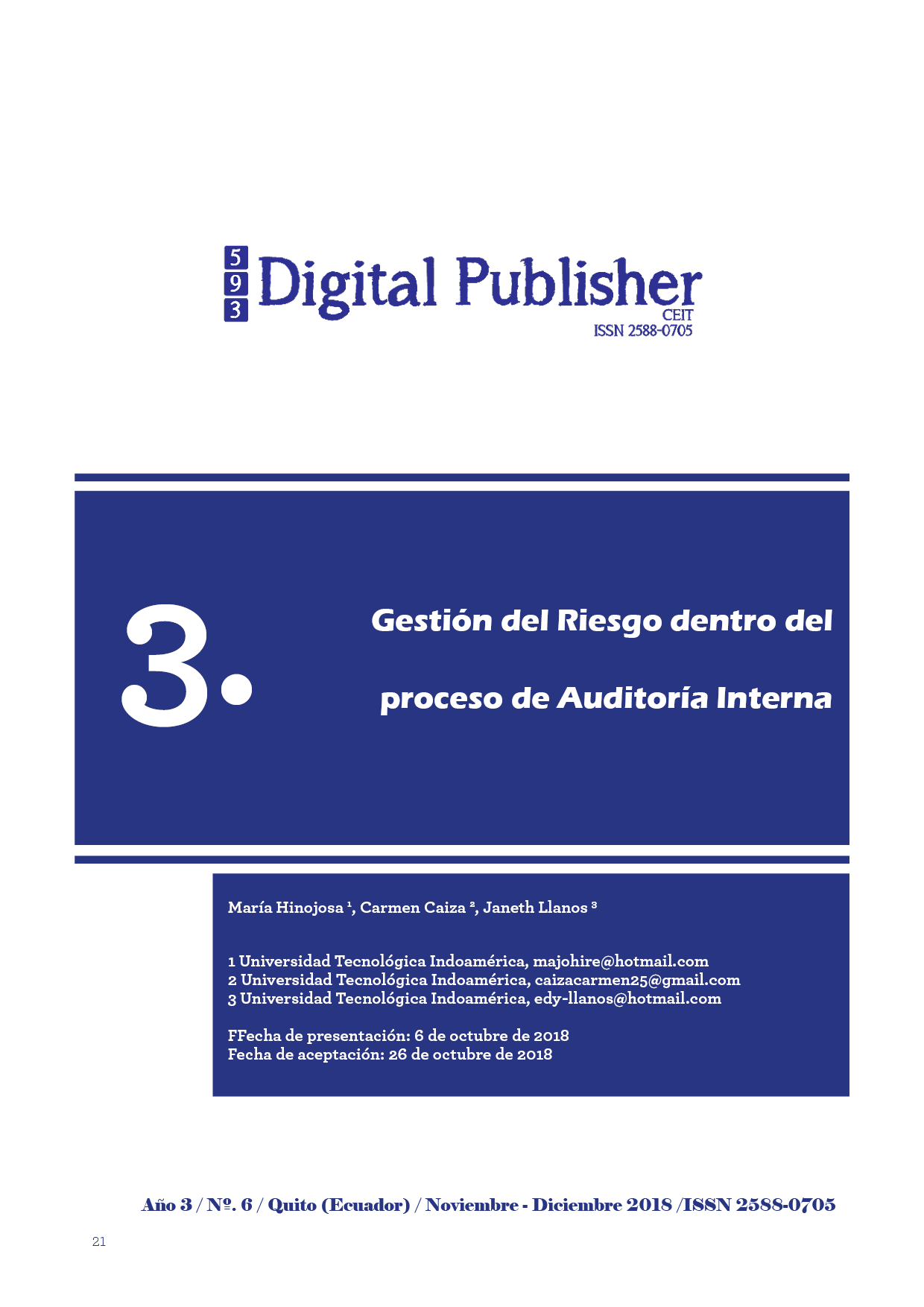Gestión del Riesgo dentro del proceso de Auditoría Interna
Main Article Content
Abstract
Impact measures within an internal audit process are, for example, the nature of the activity; taking into account the critical nature of the activity and the part of the organization that uses the activity. It is more likely that non-frequent or unusual activities or projects result in errors or inefficiency, and are of greater interest to the audit. (Institute of Internal Auditors, 1999)
The emergency measures. This factor is related to the measures that have been implemented to continue operations, if the new system presents problems. The problems to be considered include business continuity plans, disaster recovery plans, manual procedures and the previous system. In general terms, if the above aspects have been addressed, they can be achieved or are benefits in terms of cost, then the risk is lower and the impact that it generates is also of less impact before the measures that are applied in the process of Internal Audit in an organization regardless of the business line of business. (Brennand, 2004, p.49).
The importance of the function for executive management plays a very relevant role. This factor is related to the importance that top management gives to the unit, function or area. (Brennand, 2004, p.49).
The materialization is the summary of the concept about the importance of an information element in relation to the impact or effect on the functioning of the organization. Expression of the relative importance of a particular issue in the context of the entire organization. (Brennand, 2004, p.49).
Downloads
Article Details
1. Derechos de autor
Las obras que se publican en 593 Digital Publisher CEIT están sujetas a los siguientes términos:
1.1. 593 Digital Publisher CEIT, conserva los derechos patrimoniales (copyright) de las obras publicadas, favorece y permite la reutilización de las mismas bajo la licencia Licencia Creative Commons 4.0 de Reconocimiento-NoComercial-CompartirIgual 4.0, por lo cual se pueden copiar, usar, difundir, transmitir y exponer públicamente, siempre que:
1.1.a. Se cite la autoría y fuente original de su publicación (revista, editorial, URL).
1.1.b. No se usen para fines comerciales u onerosos.
1.1.c. Se mencione la existencia y especificaciones de esta licencia de uso.
References
ISO 9000, Quality Management Systems. Fundamentals and Vocabulary.
ISO 9001, Quality Management Systems. Requirements.
ISO 19011, Guidelines for Auditing Manage-ment Systems.
ISO Guide 73:2009, Risk Management. Vo-cabulary.
Instituto de Auditores Internos, 1999
Brennand, 2004
(https://www.oas.org/juridico/PDFs/mesicic5_ecu_ane_cge_12_nor_con_int_400_cge.pdf, 2009)
GTC-ISO 31004, 2016
Muñoz, P. (14 de septiembre de 2015). La importancia de la gestión de riesgos. CHAKANA, Senplades: http://www.planificacion.gob.ec/

